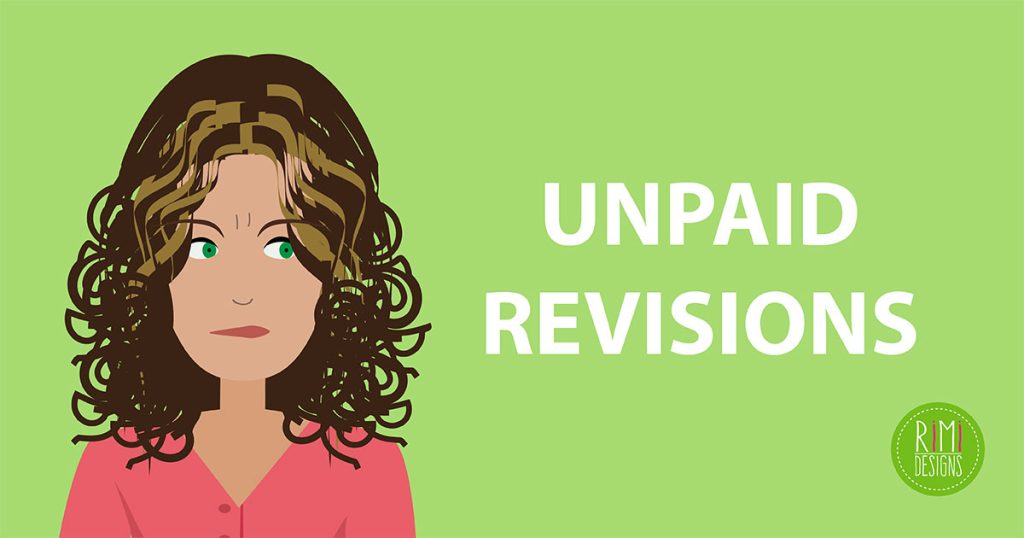
How to Avoid Lots of Unpaid Revisions
One of the big ways that freelancers have their time, energy and patience taken advantage of is by not having a proper revision provision in each contract. It may seem like a tweak here and a edit there, however, too many revisions can cause major disruptions to your workflow and oftentimes leave you working for free.
How to avoid issues with revisions
Depending on the scope of work, type of billing, type of work, etc., there are many different ways of protecting yourself against issues with revisions. However, no matter what kind of work you do, building an air-tight and job-specific revision clause into each contract will make it easier in the long run.
Even if you feel that your fee structure or scope of work is rock solid at the beginning of a job, a client could (and will) at some point change what they want. At which point, the client will usually assume that you want to work for free and that you pay your rent with smiles and high fives.
The revision clause of your contract should more or less state the following:
- Any changes to the scope of work will incur additional fees.
- The amount for the base fees (whether it be per project, task or hour), how they will be billed and when you expect payment.
- How many rounds of revisions are included in the base fee and what constitutes a revision.
For example, you may say that your fee includes two rounds of revisions (provided they don’t require work outside the original scope of work as previously defined) and that you reserve the right to decline or charge additionally for anything beyond the scope of work. - How any subsequent revisions will be billed and when you expect payment.
Hourly and fee-based projects should be treated essentially the same in terms of revision provisions. At the end of the day, the provision is in place to make sure that the client knows exactly how much work they can reasonably expect for the amount of money agreed upon.
SOURCE: Freelancers Union



